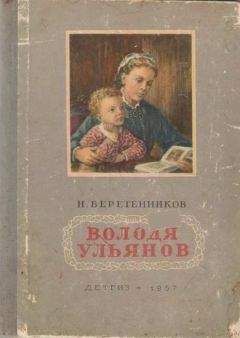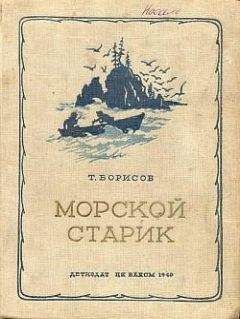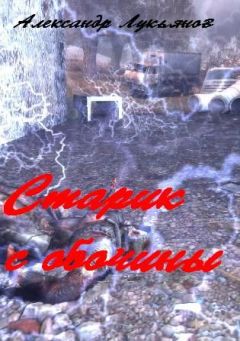Dodie Smith - I Capture the Castle
We drove along the lonely coast road. There was no mist over the sea; it was all pale, shimmering gold, so calm that the waves seemed only
just able to crawl on to the shore and spread a lacy film over the
sands.
"Look! That's where we had the barbecue," I cried. Simon only nodded and I wished I hadn't spoken. It wasn't a moment to remind him of a
very happy day.
We could see "The Swan" from far off, it was the only building ahead of us: an old, old inn, rather like "The Keys" at Godsend but even smaller and simpler. The windows glittered, reflecting the early sun.
Simon drew up just outside the door.
"Someone's awake," he said, looking upwards.
A window was open in the gable- a window extraordinarily like the gable window at "The Keys," even to the jug and basin standing there.
Floating out to us came the sound of a girl's voice singing "Early One Morning."
"It's Rose!" I whispered.
Simon looked astonished.
"Are you sure?"
"Certain."
"I'd no idea she could sing like that."
He sat listening, his eyes suddenly alight. After a few seconds, she
stopped singing the words and just hummed the tune. I heard her moving about, a drawer being opened and closed.
"Surely she couldn't sing like that if she wasn't happy?" said Simon.
I forced myself to say: "Perhaps it's all right--perhaps it was just nerves, as Topaz said. Shall I call up to her ?"
Before he could answer, there was a knock on a door inside the inn.
Then a man's voice said: "Good morning! Are you ready to come out and bathe ?"
I heard Simon gasp. The next instant he had re-started the car and we shot forward.
"But what does it mean ?" I cried.
"That was Neil!"
Simon nodded.
"Don't talk for a bit."
After a few minutes, he stopped the car and lit a cigarette.
"It's all right- don't look so agonized," he said.
"I feel now as if I'd always known it."
"But, Simon, they hate each other!"
"Looks like it, doesn't it ?" said Simon, grimly.
We drove on until we found a different road to go back by, to avoid
re-passing the inn.
Simon didn't talk much, but he did tell me that he had known Neil was attracted by Rose in the beginning.
"Then he decided she was affected and mercenary--at least, that's what he said. I kidded myself he was piqued because she preferred me--just as I kidded myself she really cared for me; that is, I did at first.
For weeks now, I've had my doubts, but I hoped things would come right after we were married. God knows I never had the remotest idea she was in love with Neil, or Neil with her. They might have told me honestly.
This isn't like Neil."
"I shouldn't have thought it was like Rose," I said miserably. We went home through the full brightness of the morning. All the villages were waking up and a great many cheerful dogs were barking in them. There
were still a few scarves of mist floating the water-meadows where we
had watched the veiled sunrise. As we drove past I remembered how I
had told myself I would make Simon happy. I didn't feel the same
person. For I now knew that I had been stuffing myself up with a silly fairy tale, that I could never mean to him what Rose had meant. I
think I knew it first as I watched his face while he listened to her
singing, and then more and more, as he talked about the whole wretched business- not angrily or bitterly, but quietly and without ever saying a word against Rose. But most of all I knew it because of a change in myself. Perhaps watching someone you love suffer can teach you even
more than suffering yourself can.
Long before we got back to the castle, with all my heart and for my own heart's ease as well as his, I would have given her back to him if I
could.
Now it's October.
I am up on the mound, close to the circle of stones. There are still
some bits of charred wood left from my Midsummer fire.
It is a wonderful afternoon, golden, windless--quite a bit chilly,
though, but I am wearing Aunt Millicent's little sealskin jacket, which is gloriously warm, and I have Father's old traveling rug to sit on. He now uses the big bearskin coat. One way or another all Aunt
Millicent's furs have at last fulfilled themselves.
Now the wheat fields are all string-colored stubble.
The only bright color I can see anywhere is the spindle-berry bush down in the lane. Over towards Four Stones, Mr. Stebbins and his horses
are ploughing. Soon we shall be surrounded by what Rose used to call a sea of mud.
I had a letter from her this morning.
She and Neil have driven across America and are now in the Californian desert, which sounds less and less like my idea of a desert; Rose says there are no camels and the ranch has three bathrooms. She is
perfectly happy--except about her trousseau which has turned into fairy gold. She only needs slacks and shorts now, she says, which it didn't happen to contain. But Neil is going to take her to stay in Beverly
Hills so that she can dance in her evening dresses.
I wish I didn't still feel so angry with her; it is wrong of me when I have officially forgiven her. And she and Neil didn't really run away without explaining to Simon. Neil wrote the explanation and left it
with Rose's note on the hall table, but it got under the letters that came by the afternoon post. Simon never thought of opening anything
else after reading Rose's message.
I only saw her alone once before she went to America. It was on the
awful day when we all went to the flat and everything was patched up.
First Mrs. Cotton had an interview with Rose and Neil to forgive them, and then Simon had an interview with each of them separately, to go on with the forgiving. Then Mrs. Cotton asked Father if he would like to see Rose alone and he said:
"Great God, no! I can't think why Simon endures all this horror." Mrs.
Cotton said:
"One must be civilized"--at which Father gave such an angry snort that Topaz grabbed his arm warningly.
After that we all had a hollow champagne lunch.
Stephen came, in a very well-cut suit, looking quite staggeringly
handsome. When Rose shook hands with him she said: "I'll thank you as long as I live."
I didn't know what she meant until I was alone with her afterwards,
helping her to pack. Then she told me that Stephen had gone to Neil's hotel and told him plainly that she wasn't in love with Simon.
I think Neil must have believed me when I wrote and told him she was; anyway, he had hardly let himself see her while she was in London. But after talking to Stephen, he went to the flat and asked her straight
out.
"And do you know what it was like?" she said.
"Can you remember me coming home after I had scarlet fever --how we hugged and hugged each other without saying a word his It was like that only a million times more so. I thought we never would stop holding on to each other.
I'd have married him if he hadn't had a penny--and I would weeks ago
if only he'd given me the chance. You see, I didn't know that he cared for me."
"But, Rose, how did Stephen know he did?" I asked.
"Well, he had a little clue that Neil was, well, interested in me," she said, then went off into one of her nicest giggles.
"Do you remember that night they mistook me for a bear, when I slapped Neil's face his After he carried me across the railway line to the
field behind the station, he set me down and said: "This is for
slapping me,"--and then he kissed me. And Stephen saw."
So that was what she had up her sleeve when we talked in bed that
night! I felt she was hiding something--and then I forgot all about
it.
I said: "But just because he saw Neil kiss you once" "It was more than once, it was quite a lot of times. And it was wonderful. But I
thought he needed punishing for the things you heard him say about me in the lane- and for daring to kiss me like that, even though I'd liked it.
Besides, he wasn't the rich one. Though--truly, Cassandra, I don't
believe I'd have let that stand in the way if he'd ever showed he
really cared for me. But he never did--he wasn't ever nice to me
again, always rude and horrid; because he thought I was chasing Simon-which I certainly was.
And when Simon kissed me, that was a bit wonderful, too-you can't
really judge by kisses- so I got mixed. But not for long."
Oh, so many things came back to me! I could see how she had tried to
work herself up into hating Neil-her dislike for him had always seemed exaggerated. I remembered how quick she had been to tell Simon to make him come to the flat that night I was there, how she had asked him to dance with her, how depressed she had seemed when they came back to the glittering corridor.
And, of course, so much of Neil's anger on the night of the engagement had been due to jealousy!
They had walked out of the flat that morning hoping to get married at once" You can do that in America, Neil says; but we soon found you can't here. So we went down to the inn to wait until we could. We
chose that place because Neil said the picnic was the last time he'd
seen me human. And of course, darling, it's really you I have to thank for everything, because I'm sure Stephen only went to Neil on your
account. He told Neil you were the right one for Simon--I suppose he'd guessed you were in love and was trying to help you."
Oh, my dear, dear Stephen, how can I ever repay you for such
unselfishness? But the happiness you hoped to win for me will never be mine.
"And of course everything will come right now," Rose chattered on.
"Just as soon as Simon's got over me a bit, you'll be able to get him
."
"I should have thought you'd have grown out of talking about "getting"
men," I said coldly.
She flushed.
"I didn't mean it that way- you know I didn't. I'm hoping he'll really fall in love with you. He likes you so much already- he said so only
today."
A dreadful thought struck me.
"Rose- oh, Rose!" I cried.
"You didn't tell him I'm in love with him ?" She swore she hadn't. But I fear she had. He has been so kind ever since then he was always
that, but now his kindness seems deliberate. Or do I imagine it? I
know it has made me feel I can hardly bear to see him;
but it takes so much strength of mind not to, when he comes to talk to Father nearly every day. They are in the gatehouse together, now.
Apparently I was all wrong about Father.
Apparently it is very clever to start a book by writing THE CAT SAT ON
THE MAT nineteen times.
Now stop it, Cassandra Mortmain. You are still piqued because Thomas
was the one to guess that what we found in the tower wasn't just
nonsense. You are trying to justify your stupidity--and it was
stupidity, considering Father had told you plainly that all his
eccentricities meant something. And it isn't true that the book starts with nineteen cats on mats; in the revised version there are only seven of them. And there is a perfectly logical explanation of them,
according to that bright boy Thomas. They are supposed to be in the
mind of a child learning to read and write.
Am I unusually stupid his Am I old-fashioned his Am I really Harry's
father jeering at Jacob Wrestling? Oh, I can see that Father's puzzles and problems are clever in themselves, that the language in which he
sets them out conjures up beautiful images; but why are they supposed to be more than puzzles and problems his Thomas and I were used as
guinea-pigs for the first four sections when Father had fully revised them; there is a lot more in them now than when we found them two
months ago. I really did try. I worked out the children's puzzles
quite easily. I managed to do the crossword--and I can't say I enjoyed it, as the clues are all to do with nightmares and terror. I treated
that homing pigeon with the greatest respect (it is the hero of a kind of comic strip called "Pigeon's Progress"). I even fought my way through most of Section D, which is a new kind of puzzle invented by
Father, partly words, partly patterns, with every clue taking you
further and further back into the past. But none of it meant anything to me-and it did to Thomas, though he admitted he couldn't get his
feelings into words.
Father said: "If you could, my boy, I'd go out and drown myself." Then he roared with laughter because Topaz said Section A had "overtones of eternity."
As far as I am concerned, it all has overtones of lunacy NO. I am
jeering again. I am DENSE. If Simon says Father's Enigmatism is
wonderful, then it is. (it was Simon who christened it
"Enigmatism"-and a very good name for it.) And publishers both in England and America have paid Father an advance, even though the whole book may not be finished for years. And the first four sections are
going to be printed in an American magazine very soon. So now will I
stop jeering?
If only Father would answer a few questions! If Thomas would throw out some more of his bright ideas! (after telling me Section A was a child learning to read and write, he decided he was not "prepared" to say any more.) Topaz, of course, is always delighted to air her views, but I
hardly find them helpful.
Her latest contributions are "cosmic significance" and "spherical profundity."
The one person who could help me, of course, is Simon; but I don't like to ask him to have a private talk in case he thinks I am running after him. I try to avoid meeting him unless someone else is there. Often I keep out of the way until I know he has gone back to Scoatney.
Shall I let myself see him today? Shall I run down from the mound when he comes out of the gatehouse, then say I want to ask him about
Father's work? I do indeed, but more than anything I just want to be
with him. If only I could be sure that Rose didn't tell him about
me!
I will wait until tomorrow. I promise myself tomorrow.
It is out of my hands. I looked down and saw him standing in the
courtyard--he waved to me -started towards the bridge--he is coming up!
Oh, I won't let myself be self-conscious! It will help if I talk hard about Father-How much one can learn in an hour!
All I really want to write about is what happened just before he left.
But if I let myself start with that I might forget some of the things which came first. And every word he said is of deepest value to me.
We sat side by side on the rug. He had come to say good-bye; in a few days he is going to America--partly because Mrs. Cotton wants to be in New York for the winter and partly so that he can be there when
Father's work first comes out in the magazine.
He is going to write some articles on it.
"Your Father says I'm like an alert terrier shaking a rat," he told me.




